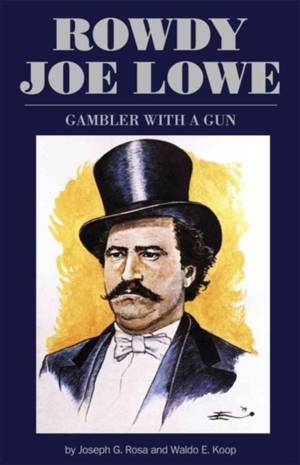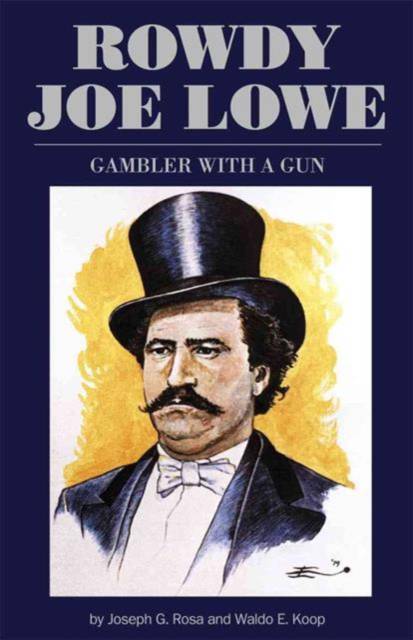
- Retrait gratuit dans votre magasin Club
- 7.000.000 titres dans notre catalogue
- Payer en toute sécurité
- Toujours un magasin près de chez vous
- Retrait gratuit dans votre magasin Club
- 7.000.0000 titres dans notre catalogue
- Payer en toute sécurité
- Toujours un magasin près de chez vous
Description
A view into the smoke-filled saloons, brothels, and gambling "hells" of the frontier West
Joseph Lowe attracted trouble the way a magnet draws iron. Eventually this strange talent cost him his life, but not before he had made his mark in a good many towns of the frontier West. "Rowdy Joe," folks called him. He was every bit of that and more.
The life that earned him his nickname began after the Civil War, when he mustered out of the Union Army and went West. He apparently worked as a mule skinner and at other jobs before getting into the entertainment business--saloons, dance halls, gambling parlors, brothels--at Ellsworth, Kansas.
In this book the authors explain how taxation was used to control and manipulate what some called "this evil in our midst." In telling the story of Joe Lowe and his place in frontier history, they also focus on the measures taken by city councils to extract cash from the "locusts of lechery" in an effort to curtail their activities.
Communities that employed police to enforce local ordinances and state laws found that enforced taxation was not only less deadly than the six-shooter, but more productive. Harsh fines could be imposed for "soliciting" or running a saloon or "house" without a license, and in this manner the city benefited from revenue paid for the privilege of remaining in business. Some like Lowe refused to pay, but invariably they met defeat.
When things got hot in Kansas, Joe tried Texas, and then Colorado. It was in Denver that Joe got drunk once too often, repeatedly antagonized a former policeman, and was shot and killed.
Rowdy Joe Lowe is a view into the smoke-filled saloons, brothels, and gambling "hells" of those who prospered or perished amongst the pasteboard pirates, pimps, or other characters of the frontier West.
Spécifications
Parties prenantes
- Auteur(s) :
- Editeur:
Contenu
- Nombre de pages :
- 208
- Langue:
- Anglais
Caractéristiques
- EAN:
- 9780806139623
- Date de parution :
- 15-10-89
- Format:
- Livre broché
- Format numérique:
- Trade paperback (VS)
- Dimensions :
- 140 mm x 216 mm
- Poids :
- 244 g

Les avis
Nous publions uniquement les avis qui respectent les conditions requises. Consultez nos conditions pour les avis.






